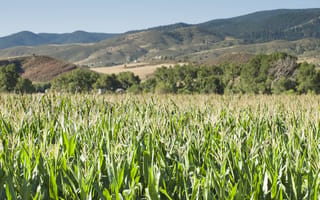Colorado’s mountains are a draw for leading tech talent, but it’s the rolling hills below that drive the agricultural tech innovations needed to feed the world’s growing population.
With 73 startups dedicated to agriculture technology, Colorado is the second-largest agtech ecosystem in the country, tied with New York and second only to Silicon Valley, according to a recent report on venture capital funding and agtech innovation. Engineers and developers in Denver and Boulder are working with farmers to solve those issues with drones, autonomous machines and big data tools.
As an agtech ecosystem, Colorado has a range of advantages over traditional tech hubs, starting with close proximity to fields and farmers to test out their tools. Add in a growing tech center in Boulder and Denver, a pipeline of talent from Colorado State University’s agriculture program and a series of agricultural challenges that breed innovative solutions, and the state has all the ingredients to be a leader in the industry.
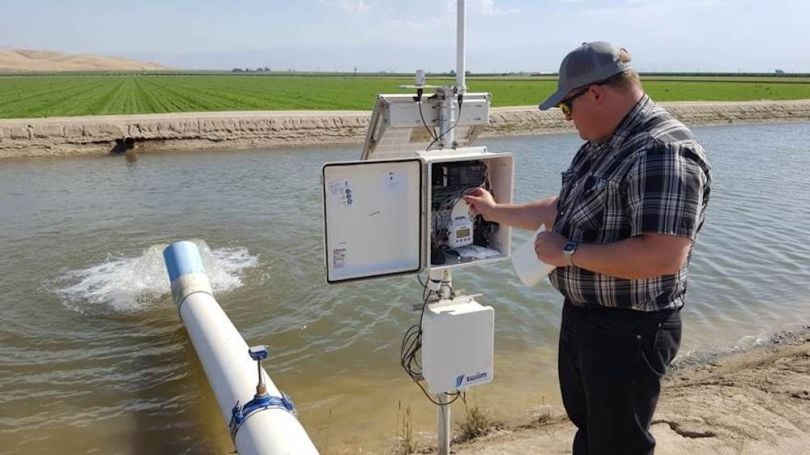
Colorado ‘gets’ agriculture’s biggest challenges
Ten years ago, Kevin France set out to create technology that could help farmers track every drop of water they used.
Colorado had just emerged from a lengthy drought, and many of the state’s farmers were selling away their water rights for millions of dollars. This proved to be lucrative in the short run, but France, who had helped farmers negotiate those exchanges, knew it wasn’t a long-term solution for farmers or the state’s economy.
So, he met with local philanthropist and gas magnate Ed Warner and hydrogeologist Bob Stoller to come up with a better way for farmers to measure and manage their water. The group received a grant from the Colorado Water Conservation Board and U.S. Department of Agriculture to set up a five-year research and development program in Greely, Colorado to solve the issue.

The results led to his company, Swiim System. It provides a device that integrates with existing water measurement tools, such as water gauges, and reports water usage in real-time via telemetry to Swiim. The data is then uploaded to be analyzed in its software, which presents farmers with exactly how much water is used for crops, versus how much goes back into the ground or atmosphere.
Colorado is a wonderful state to attract not only a staff but develop early-stage entrepreneurial vision.”
Colorado’s connection to tech talent in Boulder and Denver, an innovative agriculture research school in Colorado State University, and challenges with water, made it the perfect launching ground for France. It’s central location has been another benefit as the company has expanded into California, Arizona, Nevada and other Western states, France said.
“Colorado is a wonderful state to attract not only staff but to develop an early-stage entrepreneurial vision,” France said. “You have a beautiful land grant university, you have the resources and you have an environment that encourages entrepreneurship and risk-taking.”
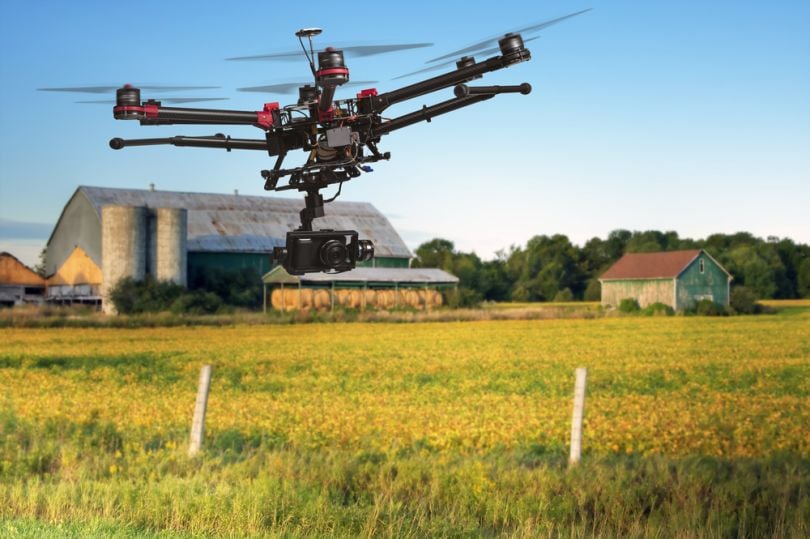
Making space for both lab and field work
As a state, Colorado has a number of factors that make it fertile ground for launching an agtech company. Agriculture is an important economic driver for the state, contributing about $40 billion to its economy each year, according to the Colorado Department of Agriculture. This includes a wide variety of types of crops ranging from fruits and veggies to wheat, hay and corn, as well as beef and dairy.
That exposure to agriculture gives tech workers in the cities ample challenges to explore, according to Graff, who researches economics and technology in agriculture at Colorado State University.
“Colorado has real opportunity for creating crossovers of technology and agriculture, whether that's between spatial data science and agricultural management or aerospace and agricultural information,” Graff said. “It's relatively easier to collaborate between the lab and the field in this setting here.”
Launching in Denver has been helpful to Tortuga AgTech, which has been conducting hands-on tests to improve on existing systems and solve issues like food quality and labor shortages.
Colorado has real opportunity for creating crossovers of technology and agriculture, whether that's between spatial data science and agricultural management or aerospace and agricultural information.”
Using tools like robotics and machine learning, Tortuga AgTech builds tools that help automate the picking and packing processes. This type of automation is a critical piece in the future of agricultural innovation.
“In many markets, labor has become an increasingly scarce supply,” Agtech attorney Roger Royse told Built In. “Technologies that would replace the manual labor of the farming process maximize efficiency, so that the costs of labor, production and wasted materials are minimized.”
Xiant Technologies in Greeley, Colorado, has developed an LED growing lamp that manages the wavelength animals or plants are exposed to in order to facilitate optimal growth conditions. Its goal is to help farmers generate maximum crop production to solve projected food shortages.
MycoTechnologies, meanwhile, is attracting investments from the companies behind Kellogg’s and Tyson Foods with technology that has helped create a neutral, sustainable plant-based protein.
These companies are but a drop in the bucket of a much larger agtech network, in which companies are working on everything from sustainable fishing to hydroponics to developing social networks where farmers can discuss soil consistency.

It takes a village
The larger efforts of the Colorado agritech landscape would not be possible, however, without direct support from local and state institutions alike.
Colorado State University has played a large role in Colorado’s agritech evolution through investment in research and development programs. Denver and CSU recently struck a partnership to turn a portion of the National Western Center, which has long been home to the National Western Stock Show, into a state-of-the-art campus focused on agriculture innovation.
“Within that redevelopment, there are visions for creating a focal point for agtech innovators and startup companies within the state of Colorado,” Graff said. “The geography for it is perfect. It's in the traditional beating heart of Colorado's agricultural industry.”
Graff said industry organizations like the Colorado Fruit and Vegetable Growers Association have also nurtured growth. The group hosts annual startup pitch competitions during its conference, with the goal of bringing tech to a broader swath of local farmers. Winners receive $3,000 in legal services along with membership to the Rockies Ventures Club and Western Growers Center for Innovation and Technology.
That’s going to help move this technology out of the tech bubble and into the real world.”
Meanwhile, the dairy community has also embraced technology, with the Dairy Farmers Association of America launching an accelerator program. The commitment of those communities will play a big role in helping the state’s startups build applicable technology.
“That’s going to help move this technology out of the tech bubble and into the real world,” Graff said. “That transition is an area where Colorado will be better positioned than Silicon Valley.”
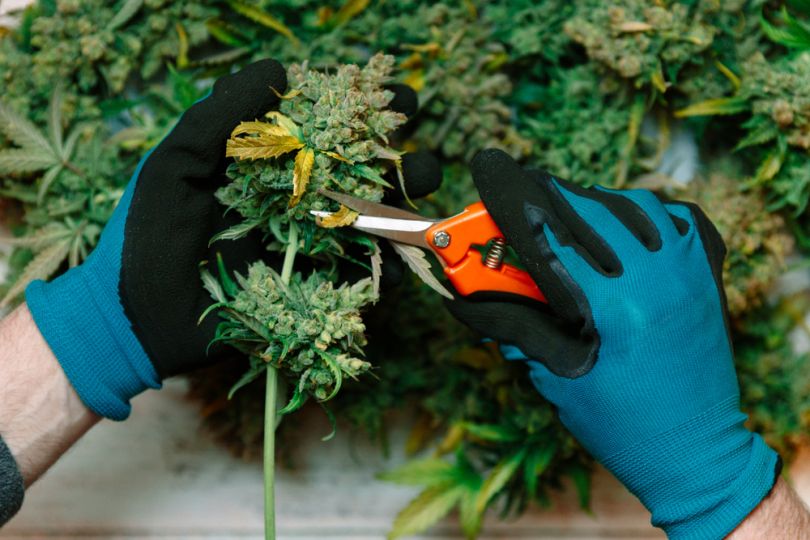
Drawing inspiration from the budding cannabis industry
Of course, when we’re talking agriculture in Colorado, there’s no overlooking the state’s status as the first to legalize recreational cannabis along with Washington.
The cannabis industry has netted Colorado $1 billion in state revenue since legalization. It’s also placed the state at the forefront of cannabis-related agtech innovations, Graff said.
Having some serious growers near at hand definitely helped the industry to iterate faster and come up with new varieties and new ways of growing this very new crop quickly.”
Companies like Denver-based American Cannabis Company have cropped up, offering consultancy services to cannabis companies across the country. The company helps other players design, build and operate the most streamlined businesses possible, with an emphasis on both efficiency and sustainability. Among other things, ACC helps companies reduce water and energy use — practices that are both more sustainable and save money over the long term.
Cannabis’ legalization has also led to new interactions between geneticists and breeders to create new varieties of hemp for CBD and other products, Graff said.
“Having some serious growers near at hand definitely helped the industry to iterate faster and come up with new varieties and new ways of growing this very new crop quickly,” Graff said.
And after the federal government removed hemp from its list of controlled substances in the 2018 Farm Bill, the state has worked with private companies to create the Colorado Hemp Advancement Manage Plan, aka CHAMP. The plan is designed to support efforts to keep Colorado at the forefront of hemp production.
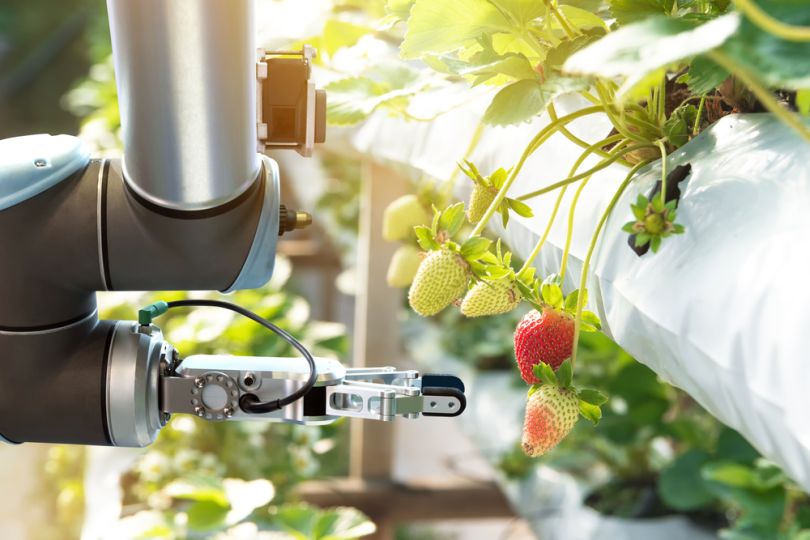
Funding remains a challenge for Colorado agtech startups
Despite all the things Colorado’s agtech ecosystem gets right, however, it’s still challenging for companies to obtain funding beyond the early stages.
When France went to find investors for his companies Series A round in 2015, he struggled to find an investment firm that understood the business model. Back then, many investors were familiar with agriculture companies or tech firms, but not both. He attempted to court investors in Silicon Valley and on the East Coast before finding an investor in Australia, where farmers experience similar drought conditions.
There’s still not a one-stop-shop of someone that’s going to fund you at one stage and, if you meet milestones, take you all the way to liquidity. That makes it tough for entrepreneurs.”
And while funding opportunities have improved in Colorado, it’s still difficult to find local VC firms that can offer multi-stage funds, France said.
“If I were doing my funding now at the stage we were at three years ago, there’s more availability to capital,” France said. “But there’s still not a one-stop-shop of someone that’s going to fund you at one stage and, if you meet milestones, take you all the way to liquidity. That makes it tough for entrepreneurs.”
Another challenge the state faces is in creating a critical mass of successful companies. It may sound obvious, but the more agtech firms that succeed in the state, the more the area will attract talent and investors to sustain an economy, Graff said.
I still believe that Colorado will continue to be an important hub, but that agtech innovation world may be more inter-regionally networked than some others.”
Four years ago, Graff declared that Colorado had the potential to be the Silicon Valley of agtech — if it played its cards right. He still believes in the state’s potential to reach those heights, but in his view, agriculture technology may be a different beast entirely from the consumer- and enterprise-facing tech verticals that call Silicon Valley home.
With agriculture and technology encompassing such a wide range of industries and challenges, he doesn’t see any one region completely dominating the industry. Instead, what’s critical both for companies and the progress of agriculture is the exchange of ideas on a global scale.
“I still believe that Colorado will continue to be an important hub, but that agtech innovation world may be more inter-regionally networked than some others,” Graff said. “You're going to have people moving back and forth between cities, regions, even countries as they develop new technologies and bring them to market as startup companies.”
And in that respect, Colorado has a lot to offer — if it continues to play its cards right.

